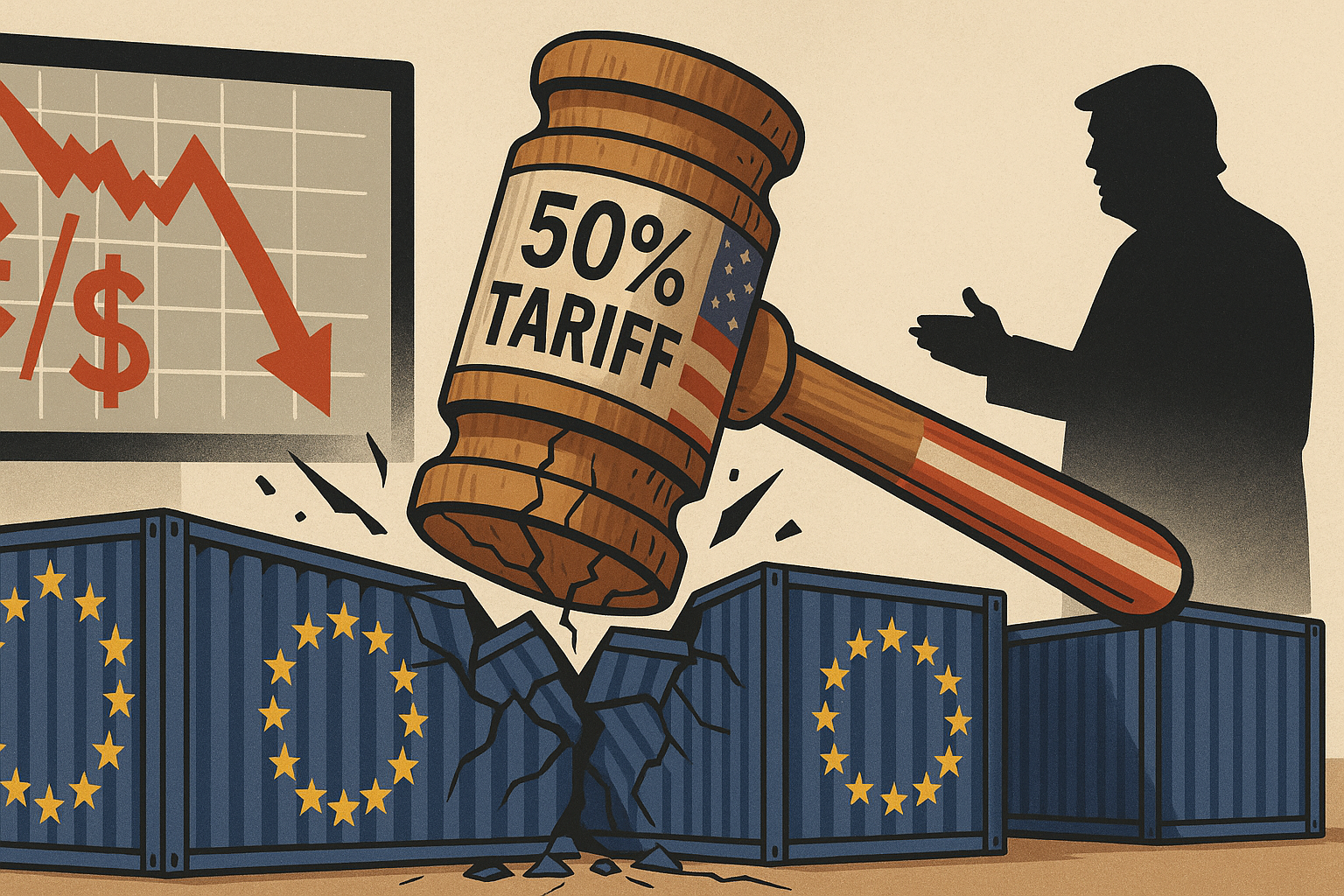Donald Trump, in his inimitable bull-in-a-china-shop style, has lobbed another economic grenade into global markets. The former president—and let's be clear, that's his only current title—announced he's "recommending" a massive 50% tariff on all European Union imports starting next June.
European industrial stocks promptly took a dive. The euro weakened against the dollar. And trade experts everywhere reached for their antacid tablets.
Here's the thing that jumps out immediately: Trump holds exactly zero official positions that would give him authority to "recommend" anything other than his favorite golf courses. What we're seeing is campaign bluster dressed in policy clothing. But in today's hair-trigger financial environment, even hypothetical policies move markets. So here we are.
I've covered Trump's economic pronouncements since his first campaign, and there's something almost comforting about the consistency of his trade worldview. It's a peculiar mashup of 18th-century mercantilism ("trade deficits mean we're losing!") and brass-knuckle nationalism that makes even dedicated protectionists wince.
A 50% blanket tariff? That's not a scalpel—it's a sledgehammer that treats precision German machinery and Italian olive oil as identical threats to American prosperity.
Look, trade deficits aren't inherently bad. They're basically just accounting entries showing Americans are buying more European stuff than Europeans are buying American stuff. Those euros don't vanish into the ether; they eventually flow back as investments in U.S. companies or purchases of American services (which, awkwardly for Trump's narrative, don't show up in merchandise trade figures).
The framework operating in Trump's head seems to be what I'd call "zero-sum transactionalism"—every deal has a winner and loser, and deficits mean you're the sucker at the table. This makes perfect sense if you've spent decades in real estate, where one party's gain often is another's loss. It just happens to be a lousy model for understanding complex international trade relationships.
What's particularly strange about the timing? The U.S. is currently enjoying something of a manufacturing renaissance. Intel's building chip plants in Ohio. Micron's expanding in New York. Taiwan Semiconductor is pouring billions into Arizona facilities.
And this boom wasn't driven by tariffs! It came from targeted industrial policy (the CHIPS Act) and companies desperately wanting to diversify away from China-dependent supply chains.
So what happens if a 50% EU tariff actually materializes?
Chaos, basically. European luxury cars and wines would become significantly pricier for American consumers. U.S. manufacturers using European components would face higher input costs. European companies would accelerate their already-underway efforts to build production facilities in North America (which, ironically, might fulfill some of Trump's stated goals).
And the EU would retaliate—smartly. During previous trade skirmishes, they demonstrated a surgical precision in targeting politically sensitive American products. Remember when they slapped tariffs on Kentucky bourbon during Trump's first term? That wasn't random—it was aimed straight at Senate Republican Leader Mitch McConnell's home state.
The timing element here is fascinating. Trump's proposed June 1, 2025 implementation date falls neatly after the election but before a potential inauguration—creating what you might call Schrodinger's Tariff, simultaneously real and not-real until the electoral box is opened.
I spoke with several economists last week who almost universally condemned tariffs of this magnitude as harmful to both economies. But there is that contrarian view that threatening massive tariffs gives America leverage for extracting concessions on specific issues.
The problem? When you threaten to burn down the entire neighborhood, it tends to make focused negotiations harder, not easier. (People get distracted by, you know, not wanting their houses on fire.)
Whatever happens with this particular tariff threat, it highlights how trade policy has become completely entangled with domestic politics. The actual economic impacts matter less than the signal sent to voters who—sometimes quite reasonably—feel the benefits of globalization have passed them by.
Meanwhile, European diplomats are undoubtedly working back-channels to Trump's team while publicly expressing appropriate levels of outrage. Markets will partially price in the risk while hedging against the possibility this is just Art-of-the-Deal theater.
And somewhere in Brussels, I guarantee some poor civil servant is already updating spreadsheets of politically sensitive American exports. Those Kentucky distillers might want to stock up on European oak barrels while they're still affordable...
